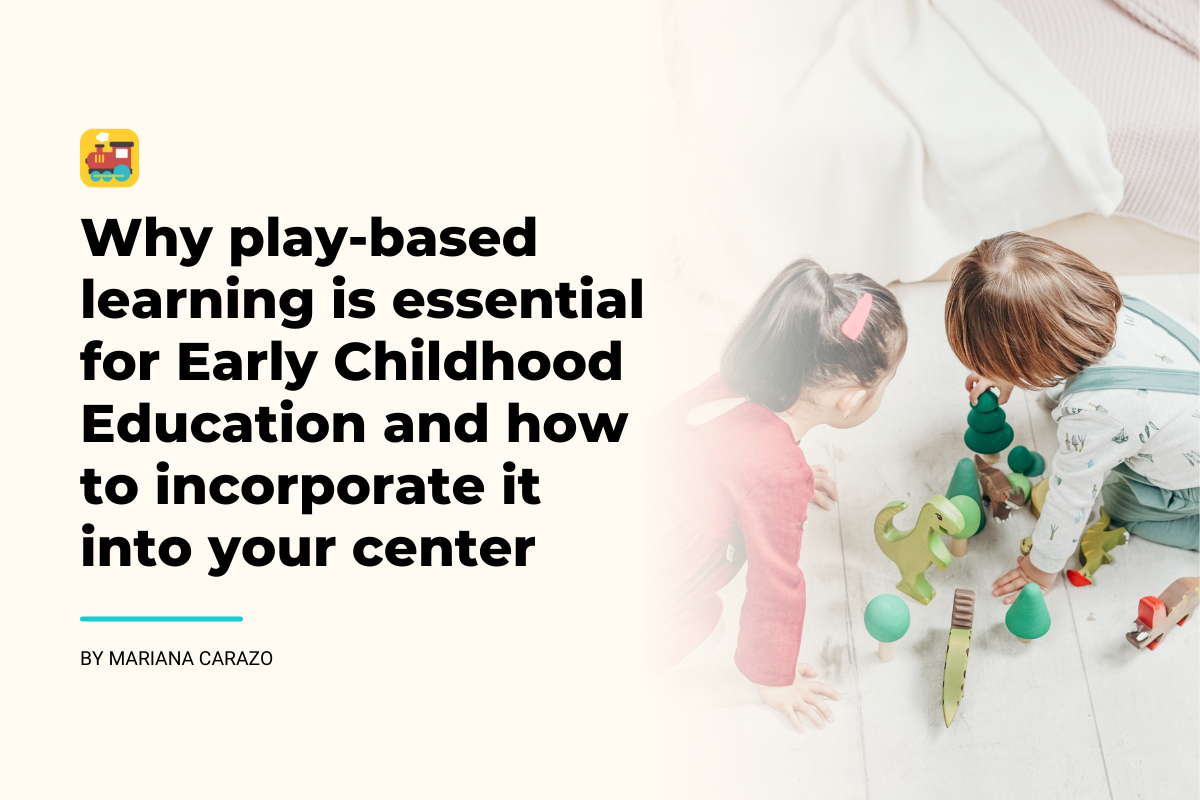Welcome our Guest Writer, Mariana Carazo, Educator and Founder of Developing Minds
Mariana holds a MA Degree from Columbia University in Curriculum and Teaching with a major in Gifted and Talented Education. She is a passionate and keen educator looking to re-think education through Play Based Learning and developmentally appropriate practices. She is also a curriculum designer and does content development within the educational industry. She has been an independent consultant for reading and handwriting companies for the past 14 years. She currently teaches her 6 year old daughter and her friends in her garage; making visible how learning can happen through a play based learning model meeting all learning standards.
Make sure to watch the webinar that inspired this blog post here!
If we close our eyes and go back to our school days; we can see desks lined up in a classroom, a board, and a teacher. You can even feel the load of all the books in your backpack, the smell of the books and notebook pages, and the feeling of having endless hours of homework. Was it worth it? Do we really use all those things we learned from homework, textbooks, and long lectures in our daily lives? Back in the day, we were at least free to run outside and explore the outdoors with limited supervision from adults.
Back to the present, all these years later and yet, it’s the same traditional education! Large groups, outdated lessons, and big expectations, with a high workload starting in the early years. Many of these things are associated with stress, anxiety, frustration, and even depression among children. Play experiences at school are often limited to recess. When children go home, they spend less time playing outdoors and more on tablets, TV, and smartphones, all of which are linked to addiction and mental health issues. My question is … is it worth it?
I believe we know better. We have the answer but we are too afraid of letting go of what we are used to and trying things outside of our comfort zone.
CHILDREN NEED TO PLAY.
CHILDREN NEED TO LEARN THROUGH PLAY…. no matter their age.
CHILDREN NEED TO PLAY AT HOME.
PLAY IS THE WORK OF THE CHILD as Piaget quoted, many years ago.
When did we forget? We aren’t reinventing the wheel here. Play has been around forever. Science proves that play is vital for mental health and brain development. Play develops social skills and engages children because it is what they like doing best.
We have been too busy upholding a system that we forgot about child development and what is best for them. We thought that by removing play from the curriculum and the equation, we would achieve academic success and more successful human beings. On the contrary, we have been creating robots, human beings who are memorizing rather than understanding… just to pass a grade level. We forgot the most important thing: we are forming HUMANS.

Please, don’t get me wrong… standards are needed to guide our way as educators, to know where we are headed, and to set expectations. The problem lies in how we are translating these standards into practice. Play should be the vehicle. Academic success will be achieved through hands-on, meaningful, and purposeful learning experiences. Children will live their learning process, rather than memorizing it to pass a test.
If you think of our lives as adults… we use credit cards, do our taxes, make budgets, finance houses and cars and write and sign many documents. Were you taught any of these skills in school? Can academics be merged into any of these areas? Can we make our school curriculum visible for our future lives, to get prepared for the real world? I believe so.

According to the World Economic Forum, children need three sets of skills to be successful human beings in adulthood.
- Foundational Literacies: literacy, numeracy, scientific literacy, ICT numeracy, financial literacy and cultural and civic literacy. In other words, all academic subjects.
- Competencies: critical thinking, problem solving, creativity, communication and collaboration.
- Character qualities: curiosity, initiative, persistence and grit, adaptability, leadership and social and cultural awareness.
Is our current school system addressing the needs of the generations today? I don’t believe so. We are 22 years into the 21st Century. Education must change TODAY. Our children deserve better. A healthy childhood and a developmentally appropriate education are the best gifts we can give our children.
How can we help this change?
At home:
- Limit screen time
- Promote independent play
- Promote loose parts play and open-ended play opportunities
- Foster outdoor play
At school:
- Integrate your curriculum
- Plan less but more powerful and integrated learning experiences
- Include play into your curriculum
- Include play into your classroom, no matter the age
- Make loose parts your default teaching tool
- Understand standards to an extent that they can be integrated into playful experiences
- Ditch homework, worksheets and tests. You can find developmentally appropriate ways of assessing children!
- Teach parents about developmentally appropriate practices
- Show progress to parents in innovative ways, making learning visible through play
- Make sure you teach for the 21st Century, integrating 21st-century skills into your curriculum and play experiences
- Make sure the child is the center of the learning process
- Relax, let go and ENJOY teaching!
The life of children is in our hands. I am advocating for PLAY and teaching through developmentally appropriate practices. I believe that together we can make a change.
Want to learn more about important topics in early education like loose parts play? Sign up for the next webinar below, it is FREE! Even if you can’t join live, you will be emailed the recording and slides just for registering!
More Resources:
Webinar: Discover the teaching philosophy that unlocks children’s creativity
A play-based classroom with a multi-age group looks like this.


